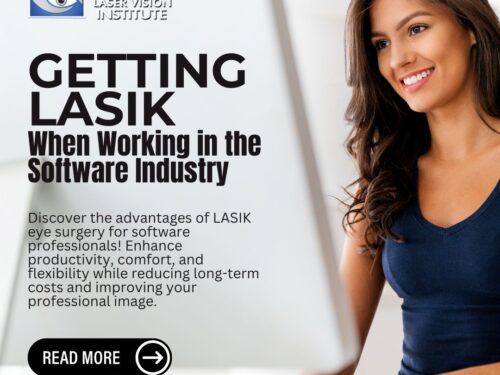
Many adults who are over the age of fifty have a high risk of developing cataracts and may need surgery to remove the clouded lens of the eye and replace it with intraocular lens technology. If you and your refractive and LASIK surgeon in Orange County feel that now is a good time for you to manage your cataracts, you probably want to know everything that you should expect during your cataract surgery recovery period.

To help you get ready for this conversation you will have with your refractive and LASIK eye surgeon in Orange County, find a list of commonly asked questions and typical answers about the cataract surgery recovery process.
What Can I Do During Cataract Surgery Recovery?
The refractive and LASIK surgeon in Orange County informs us that there is very little alteration to your regular routine after cataract surgery, and you will be glad to hear that many patients are usually back to work the next day.
Nevertheless, it is vital to not rub the eye for the first week or two, and many surgeons tell their patients to wear a protective shield or goggles while sleeping.
Your refractive and LASIK surgeon in Orange County may prescribe you eye drops to be administered several times a day for the first few weeks. The reason for the drops is to keep the eye comfortable, prevent infection and inflammation, and help in the healing process. Also, you may find that you are more comfortable wearing dark glasses while outdoors for the first few weeks after surgery. The best to go for are polarized glasses with UV protection.
What Can’t I Do During Cataract Surgery Recovery?
Many eye surgeons strongly recommend to patients who have just had cataract surgery to avoid driving until you have been seen the day after surgery to assess whether the vision is clear enough to drive safely. Furthermore, do not rub, touch or put pressure on your eye.
If you are a bit of a gym rat, regular exercise is permitted by most surgeons, but you should avoid activities that would directly impact the eye, such as contact sports. These activities can put unnecessary stress on your eye while it is healing.
Although you can shower and bathe, you have to be cautious to not get any soap or water in the eye. You have to avoid going swimming in a pool, ocean or lake for a few weeks to prevent exposing your eye to dirty, contaminated, or over-chlorinated water.
Also, make it a point to avoid environments and activities that are dusty. Many eye surgeons advise their patients to avoid eye makeup for the first week. The reason being is that you want to avoid any particles, grime or other contaminants from entering your eye and causing irritation or infection.
How Will My Eyes Feel Like After Cataract Surgery?
During the first few days following a cataracts surgery, it is not unusual for your eye to be sensitive and slightly uncomfortable. Fortunately, besides the medicated eye drops your surgeon will prescribe, you should be able to handle any symptoms with an over-the-counter pain reliever.
If you find that your eye is itchy or sore for a few days, do not be alarmed since this is normal. Also, there might be some fluid discharge, but again this is common. Some patients have redness in their eyes and experience blurry vision in the first few days after surgery.
It is important to be aware that none of these symptoms should prevent you from doing your everyday routine nor should you be in excruciating pain while doing them. These symptoms are just a normal part of the healing process that happens during cataract surgery recovery. Nonetheless, if you do experience a lot of pain or your symptoms persist for more than a couple of weeks, get in touch with your eye doctor as soon as possible.
When Can I Return To Normal Activities?
Normally, your eye doctor will test and assess your vision to determine whether or not you are safe to drive after your cataract surgery. This is usually possible a few days after the procedure. Normally, the eye will be completely healed within eight weeks after the surgery. The good news is that many people are able to return to their normal routine in a matter of a few days.
Revolving around your particular requirements and surgery, your cataract surgeon may advise other or extra instructions and recommendations for your cataracts surgery recovery. Do your best to take your time during your pre-operative visit to read over every question, and any others you might have regarding your procedure and recovery with your refractive surgeon so you are knowledgable on what to expect during and after your cataracts surgery.
Follow These Tips For A Safe And Swift Cataract Surgery Recovery
- Do not drive on the first day after the surgery.
- Do not do any heavy lifting or vigorous activity for a few weeks.
- Right after the procedure, avoid bending over since this can put extra pressure on the eye.
- Try to avoid sneezing or vomiting immediately after surgery whenever possible, of course.
- Be cautious where you walk around after surgery, and avoid bumping into doors or other objects.
- To lower your chances of infection, avoid swimming or using a hot tub during the initial week of your cataract surgery recovery.
- Do not expose your eye to possible irritants such as dust, dirt, wind, and pollen within the first few weeks after surgery.
- Do not rub your eye after surgery.
Typically, you should be able to perform these activities within a few hours of your surgery:
- Computer work
- Brief TV watching
- Showering or bathing – but do not get water or soap in your eye
To achieve the best outcome from cataract surgery, make sure to follow your doctor’s specific instructions about how to safeguard your eye after your procedure.
If you want further information about the cataracts recovery process, give Excel Laser Vision Institute a call at + (818) 907-8606 today. Our expert team of highly trained refractive surgeons can guide you step by step on what to expect after your cataracts surgery.



